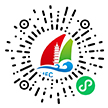The Seminar on International Boat Industry Development Was Held in Fuzhou
Accelerating Green, Low-carbon, and Intelligent Development of the Shipping Industry
Currently, both large transport vessels and small passenger ships, including leisure yachts, face challenges brought about by international carbon reduction requirements. At the Seminar on International Boat Industry Development held on November 16, experts provided insights from different perspectives for both large and small vessels, contributing valuable insights for the domestic, particularly Fujian, boat and vessel industry to reach new heights.
“Green, low-carbon, and intelligent technologies will become the new trend in the future development of the shipping industry,” said Shen Jiaqiang, Director of the Ship Technology Regulations Research Center at the Maritime Safety Administration of the Ministry of Transport. He pointed out that, compared to foreign countries, domestic ship green intelligent technology still has significant room for improvement in areas such as standard setting, domestic substitution, capability support, and low-carbon energy. According to the international carbon reduction timeline, China’s shipping industry should quickly gain a stronger voice in international regulatory frameworks and achieve key breakthroughs in core equipment supply, developing systematic solutions to meet different scenarios and demands. Meanwhile, the industry should adapt to trends by guiding the deep integration of new technologies with traditional industries and accelerating the green transformation, digital upgrade, and intelligent development of the shipping industry.
Regarding shipping fuels, Zhang Liwen, Senior Surveyor of Green Technologies at China Classification Society, provided a detailed introduction to the current application and challenges of various green alternative fuels. Under EU standards, the carbon emission cost of a regular bulk carrier can reach 340,000 euros per year, searching for alternative fuels a critical factor for the transformation of the shipping industry. Zhang Liwen noted that global orders for ships using alternative fuels are growing rapidly. As a major force in the industry chain, the China Classification Society is conducting assessments of alternative fuel compatibility in terms of controllability, economic feasibility, emission reduction effects, technical maturity, and completeness of standards, and is working with the industry to address carbon reduction challenges.
The yacht industry, closely tied to leisure and the general public, has always been a focal point in the industry. Experts at the seminar discussed the global and Asian yacht industries, the consumer market, and the relationship between yachts and urban water systems, explaining current trends in electrification, mass-market appeal, and specialization.
“Economic growth, an expanding middle class, and an increase in high-income individuals are driving steady growth in the yacht industry in the Asia-Pacific region. In addition to super yachts, there is a notable growth in the trend of mass-market yacht consumption, such as sailing boats, fishing boats, and leisure yachts,” said Lin Mingkun, President of the Sanya Cruises and Yachts Association. He further noted that Fujian’s favorable conditions in new energy power batteries and river and sea resources would enable the province to “take a shortcut” in advancing its yacht industry.
“Falling in love with a city begins with exploring its waterways”. Li Min, Deputy Chief Architect of CSSC International Engineering Co., Ltd., used poetic language to take the audience on a journey through famous water tourism projects, such as those in Suzhou, China; Venice, Italy; and the Thames in the United Kingdom. She emphasized that yachts, as a distinctive mode of water-based travel, combined with vibrant interactions along the shore, serve as the most beautiful representation of harmonious urban life between humans and water.
Small boats and yachts are primary scenarios for promoting new-energy vessels. Liu Lun, Deputy General Manager of Guangdong Epropulsion Technology Co., Ltd., provided a detailed overview of the latest technological innovations in new-energy vessel propulsion systems. Shen Jinjin, China Manager of Torqeedo Maritime Far East Ltd., analyzed the advantages and challenges of electrifying small boats by discussing technical approaches for their three main electrical systems and sharing insights from successfully implemented projects. She also offered a forward-looking perspective on sustainable water-based travel in the future.
“The seminar provided us with a valuable platform for exchange, allowing us to gain deep insights into global trends in the ship and boat industry and technological innovation, which will have a profound impact on our future development,” said a participating enterprise representative. (Reporter: Zhu Rong)







